
The Epistle of Barnabas is a curious epistle that surprisingly has some messages that ring true with modern Christians. Eusebius in his early History of the Church says the Epistle of Barnabas was “not canonical but disputed, yet familiar to most churchmen,” but not to be rejected as the writings of the Gnostics and heretics.
To be accepted in the canon, a work had to have apostolic authorship, be in wide use in the Church, be quoted by many Church Fathers, and proclaim the Good News with right teachings. Some early Church Fathers accepted that the author was the fellow apostle prominently mention by St Paul and the Book of Acts, though only the title and little in the text leads you to that conclusion. The Epistle of Barnabas was not widely used in the local liturgies of the church, nor did many patristic Church Fathers quote from the Epistle of Barnabas. But, one Church Father did quote extensively from the Epistle of Barnabas, Clement of Alexandria. The translator of Barnabas in the Ante-Nicene Fathers said he was likely an Alexandrian Jew during the reigns of Emperors Trajan and Hadrian, though he does not mention his source.
Barnabas often quoted Scripture from memory, and occasionally he quotes from sources either long lost or mangled. His memory is not as precise as other ancient authors, and occasionally he alters or adds to a scriptural quotation to strengthen his argument.
Not many copies of the Epistle of Barnabas have survived, scholars had the partial Latin text until a longer Greek version was discovered as an appendix to the Codex Sinaiticus, an early copy of the Bible preserved at St Catherine’s monastery in Egypt. Another early Greek manuscript was found in Constantinople, both these Greek manuscripts became known to European scholars in the 1800’s, the Latin manuscript had been discovered earlier. The Ante-Nicene Fathers translator states that these manuscripts contain apparent corruptions in the text, which is not too surprising given the handful of manuscripts that have survived.
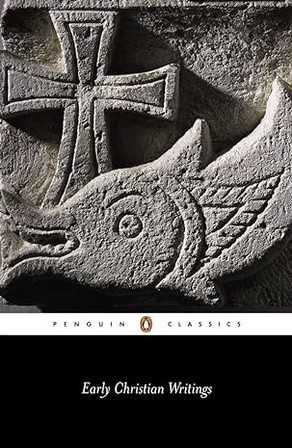
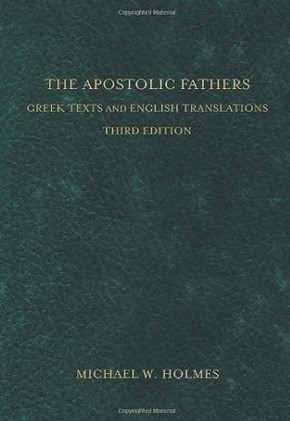
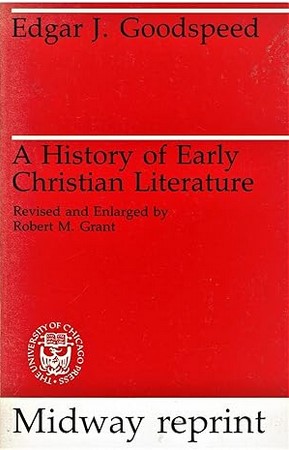
YouTube video for this blog: https://youtu.be/J8cxz5uUvdw
WERE THE EARLY CHURCH FATHERS ANTI-SEMITIC?
Were the early Church Fathers anti-Semitic? Modern readers judge the attitudes of early Christians from the lens of the knowledge of the horrors of the Holocaust, but there were no Hitlers advocating mass murder of Jews among the early Church Fathers. The early Christians did not directly persecute Jews because they were a minority religion, instead the early Christians themselves feared persecution. But over the centuries, as Christianity became central to the Western tradition, and the consequences of creeping anti-Semitism sometimes resulted in pogroms. In these pogroms Jews were often exiled, often lost their property, sometimes lost their lives. More often than not, these pogroms were condemned by the Pope and the official Catholic Church.
The early Christians showed the same enthusiasm for their faith that we see in converts today, and in all ages. This enthusiasm is like the enthusiasm shown by devoted football fans who always root for their home football team, always denigrating the opposing teams. Likewise, the early Christians were quick to find faults with their Jewish brethren, and the Epistle of Barnabas showed more such enthusiasm than many early Church Fathers. Does this over-enthusiasm cross the line into anti-Semitism? Can this over-enthusiasm cross over into the sin of envy? Such are the spiritual dangers of such religious over-enthusiasm and triumphalism.
As one translator notes, Barnabas “denies flatly there is any historic link between Judaism and the Gospel. All the rites and ceremonies of the Law, he tells us, had been intended by God simply as mystical pointers to Christ; but the Jewish people had been seduced by an evil angel into a literal instead of a spiritual understanding of them, leading them to regard the observance of the ordinances as a sufficient end in itself.” Barnabas claimed that allegorical spiritual interpretation was properly understood by Christians, and a few righteous Jews, including David, Moses, and the prophets, but Israel in general failed to understand Scriptures correctly, and “consequently all claim to the Covenant had been taken away from them and reserved instead for the Christians.”
The ever-quotable scholar Henry Chadwick describes the tension between Judaism and Christianity over allegorizing the Torah. “To the orthodox Jews, the Christians were dangerous trimmers, adjusting the unalterable religion revealed to Moses to make it more palatable to Gentile preferences.” Alternately, many early Christians would agree with Barnabas that “Moses was compelled to impose the particular ceremonies in the laws of Leviticus because the Jews were showing a tendency to become merged with the heathen Canaanites and needed a strict system to keep them separate and distinct. This need was now past.” Furthermore, “the Christian attitude was more disturbing for their insistence that, under the new covenant inaugurated by Jesus the Messiah, a blood relationship to Abraham was of no importance.”
The quotable Goodspeed notes that Barnabas allegorizes the food laws of Leviticus. The food laws “ONLY mean that we are not to be like swine, wild beasts, or birds of prey. The six days of creation are the six thousand years the earth is to last before the Messiah’s return, ‘for a day with him means a thousand years.’ So interpreted, the author finds the Jewish Scriptures full of religious meaning and predictions fulfilled in Christ.”[1]
READING THE EPISTLE OF BARNABAS
St Paul in 1 Corinthians 13 exhorts that “faith, hope, love abide, these three; but the greatest of these is love,” and Barnabas echoes this Scripture in his epistle: “The divine principles are three in number. Faith begins and ends with Hope, hope of life; judgement begins and ends with Holiness; and the works of holiness are evidenced by Love, and the joy and gladness it brings.”
David exhorts Psalm 51 that an acceptable sacrifice to God is a broken spirit and a contrite heart. Barnabas recalls the many Old Testament passages that tells us God has no need for sacrifices and whole burnt offerings, that God seeks first the sacrifice from the heart. Barnabas quotes from Isaiah 58 passages that many conservative Christians today would disown for fear of creating dependency among the poor:
Is not this the fast that I choose:
to loose the bonds of injustice,
to undo the thongs of the yoke,
to let the oppressed go free,
and to break every yoke?
Is it not to share your bread with the hungry,
and bring the homeless poor into your house;
when you see the naked, to cover them,
and not to hide yourself from your own kin?
If you offer your food to the hungry,
and satisfy the needs of the afflicted,
then your light shall rise in the darkness
and your gloom be like the noonday.
Barnabas urges, “Let us be men of the spirit,
Let us make ourselves into a real temple of God,
Let us devote ourselves to practicing the fear of the Lord,
Let us strive earnestly to keep his commandments,
Then following the Law of the Lord will be our delight.”
Barnabas finds spiritual meaning in the Old Testament. The Law of Moses states you can eat any animal who has a cloven hoof and who chews the cud. The cloven hoof is likened to the man who lives in this world but anticipates the holiness of eternity, and the chewing of the cud is like those “who seek the company of men who fear the Lord, who muse in their hearts the meaning of the Word of God,” who follow the statutes of the Lord in their life and in their heart, who find the meditation on the Word of God to be a delight, “who chew the cud of the Lord’s Word.”
Likewise, although Moses had forbidden the people of Israel to make images, Moses himself made an image that was a symbol of Jesus and the Cross, a serpent of brass that he hung on a pole, so when any of the Israelites were bitten by serpents, they might gaze up the serpent of brass in a spirit of hope and live.(210-11)
There are other passages in Barnabas that are troubling, such as when he states that when Moses carrying the tablets containing the Decalogue saw the riotous celebrations of the Jews dancing around the golden calf he hurled them to the ground, smashing them, and so, Barnabas tells us, the Jews lost their right to the Covenant of God.(213) This is not a very interesting interpretation, is there salvation in finding fault in others, not seeing the Bible stories as warnings to ourselves, but rather imagining we would of course would never be like those who reject God, that we are not the ones who need to change. A more interesting way to read the story is to imagine that we are the ones who live to dance, who seek to live to be entertained, we are the ones who without thought watch any movie that comes out, that we are the ones who dance wildly around the golden calf, that we should repent lest we please rather than anger God, for perhaps the breaking of the tablets of the Decalogue foresees the teaching that there are unforgivable sins against the Spirit. Theologians debate what this unforgivable sin could be, but perhaps the message is simply that it is possible to sin and sin a sin so dire that it is unforgivable, that God will tolerate only so much mockery and disrespect and impatience before the tables are dashed on the rocks.
Barnabas closes his epistle with the two ways, the way of light, and the way of darkness, which the author likely derived from another revered Apostolic work, the Didache, or Teachings of the Twelve Apostles. The Way of Light covers two pages, here is a sampling of what it says:
“Love your Maker, fear your Creator, give glory to Him who redeemed you from death.”
“Abhor anything that is displeasing to God,” does this include objectionable movies and TV shows?
“Do not exaggerate your own importance, but be modest at all points, and never claim credit for yourself.”
Do not covet, “do not be greedy for gain.”
“Do not set your heart on being intimate with the great, but look for the company of those who are humble and virtuous.”
Barnabas counsels that we should be generous to the poor:
“Never hesitate to give, and when you give, give without grumbling.”
“Give your neighbor a share of all you have, and do not call anything your own.”
Those who persist in the way of darkness are those who steal from the poor:
“The widow and orphan are nothing to them, and their sleepless nights are spent not in fearing God but in the pursuit of vice.”
“They have no pity for the poor, no ever trouble their heads about any poor soul in distress.”
“They turn the needy from their doors, they deal harshly with the afflicted.”
“While they aid and abet the rich, they are brutal in their judgment of the poor.”
“In a word, those who follow the way of darkness are utterly and altogether sunk in sin.”[2]
[1] Epistle of Barnabas, Ante-Nicene Fathers pp. 133-135, Goodspeed, pp. 20-22, Chadwick, pp.66-68, also Epistle of Barnabas, cited below, pp.188-190.
[2] “The Epistle of Barnabas,” in Early Christian Writings – The Apostolic Fathers, translated by Maxwell Staniforth (New York: Dorset Press, 1968), pp. 189-220.


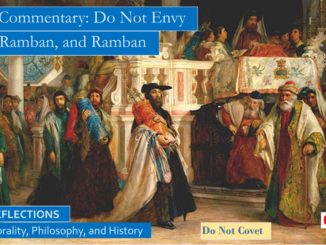
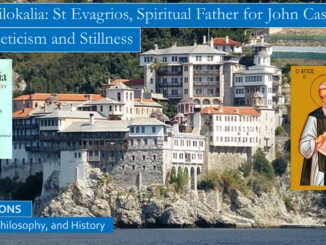
2 Trackbacks / Pingbacks